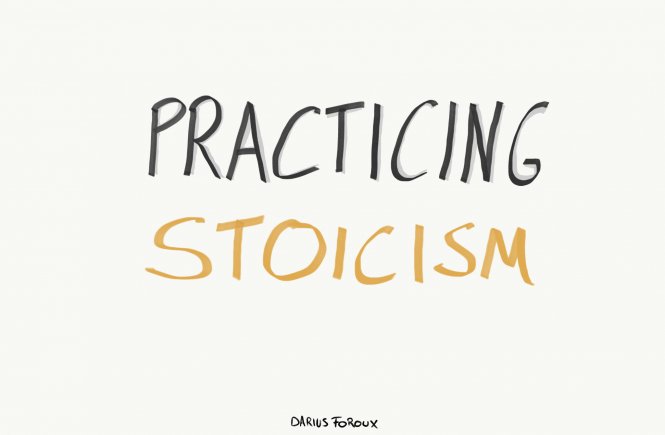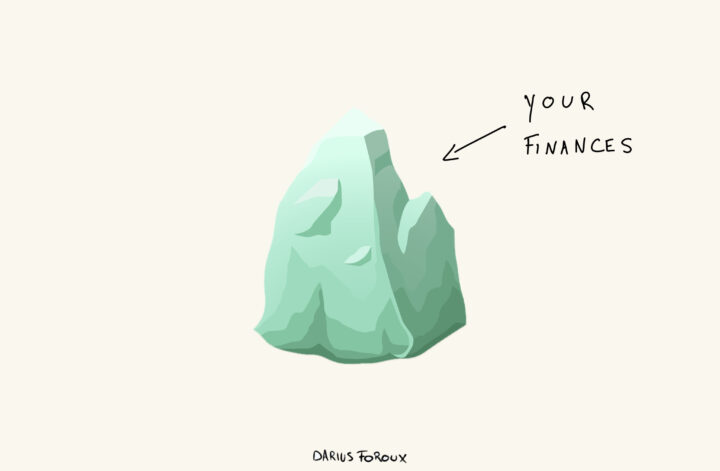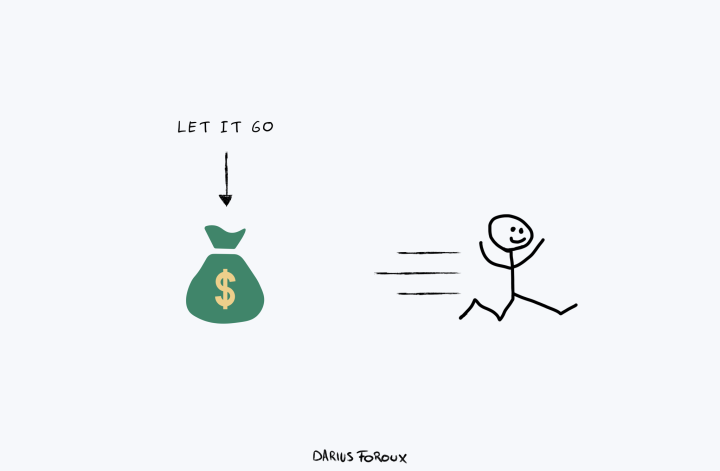How often have you finished a book and tucked it away on your bookshelf? Or how often have you borrowed a book, read it, and returned it?
There’s a difference between reading and living a book. Most of us simply read books. And that’s a good thing because you can read hundreds of books, but you can only live a handful.
But why would you even live a book? And what does it mean to live a book?
When you live a book, you make the philosophy of the book your own. You use the ideas in the book as a way of life. I first learned about this idea this year when I read Philosophy As A Way Of Life by Pierre Hadot.
In that book, Hadot, a renowned historian of philosophy, grabs lessons from ancient philosophers and turns them into daily exercises that we can practice. For example, many ancient philosophers have talked about living in the present moment.
From Socrates to Aristotle to Marcus Aurelius to Epicures—thinkers with different ideas who all talked about the same thing. But talking and actually doing are two different things.
It’s the same with reading and doing. You can read a hundred books, but you might learn nothing. Wisdom is all about application. That’s exactly where most of us go wrong.
What Is Stoicism?
Stoicism is a philosophical movement, founded by Zeno of Citium in Athens, 3rd century BC. It’s a system of logic and a way of looking at the world. The foundation of Stoicism is based on making a distinction between what we control and do not control in life.
Epictetus, who lived from 55 until 135 AD, explained it best:
“To achieve freedom and happiness, you need to grasp this basic truth: some things in life are under your control, and others are not.”
The truth is that we control only a few things in life. Epictetus says that we only control “What you believe, what you desire or hate, and what you are attracted to or avoid.”
Outside of those things, we don’t control anything. So what is Stoicism? Simply the practice of not worry about what we don’t control and focusing our energy on what we do control.
How I Practice Philosophy
I’ve been reading philosophy since I was 17. And out of all the philosophies I’ve read in my life, I identify most with Stoicism. I came to this conclusion after 13 years and hundreds of finished books.
I realize that I’ve read only a fraction of all the philosophy books that are available. But at some point, you can tell what philosophy is for you, and more importantly, what is not.
For example, I can’t relate to pessimism, skepticism, or nihilism. That’s too serious for me. I like to think, but I look for a reason behind everything. Questions like “What’s the purpose of life?” and “Does God exist?” are easily answered in my opinion.
The purpose of life is whatever you decide it is. And God also exists if you decide God exists. There are no outside forces who can decide anything for you. This is your life and you decide how to look at the world. Be concerned with living a good life—not with the opinions of others.
That’s my perspective. And by that statement, you could tell I’m an individualist, pragmatist, and stoic. Partly because I’ve always been like that. But it’s not only my nature; I’ve been nurturing and practicing my ideas as well.
Here’s how I practice philosophy:
- When I read a philosophy book, I always engage in a mental dialogue with the author. I want to make their ideas mine. I do that by visualizing situations I can apply ideas. For example, when the Stoics write about not getting attached to things, I think of the objects in my life. I realize that I don’t own any of them. I’m just borrowing them.
- I re-read a few of my favorite books. My all-time favorite is Enchiridion by Epictetus. I carry that book with me everywhere I go. And every day, I read a few paragraphs from it.
- I meditate on life. Every day, I take time to strengthen my stoic ideas. I do that by writing in my journal. It’s important to write down your philosophy for life in your own words. I tend to write about things that are going on in my life. If you’re living correctly, you’re always doing something hard in life. When you do that, you always have enough to write about. If you don’t know what to write, you need to do more things.
Best Stoicism Books
I’m regularly asked about my favorite Stoicism books. If you want to get started with learning more about Stoicism, I recommend reading text from the Stoic philosophers. There are a lot of books about Stoicism.
Especially because the philosophy has seen a surge in popularity, there are a lot of people who have written about Stoicism. Some books, like The Obstacle, Is The Way from Ryan Holiday, are great. But if you want to adopt Stoicism as a way of life, I recommend reading the Stoics themselves. Here are my favorite Stoicism books:
- Meditations by Marcus Aurelius — Marcus Aurelius (emperor of Rome A.D. 161-180) is one of the three famous modern Stoics, the two others are Seneca and Epictetus. As the ruler of the largest empire of the world, Aurelius had great responsibility and power. He wrote Meditations for his personal use. It consists of lessons he learned and notes he made to himself about living and dealing with people.
- A Manual For Living by Epictetus — A short book. A Manual For Living is exactly what the title says it is. This book also gives you a larger perspective on humanity. People have always had problems with self-confidence, family, work, other people, etc. In a way, nothing has changed. And that’s pretty comforting.
- On The Shortness Of Life by Seneca — In the Shortness Of Life, Seneca writes about the art of living. This short book is highly recommended for everyone. Seneca teaches us that life is short and that we have to live our life to the fullest.
I read these books at least once a year. Practicing Stoicism is an ongoing process.
Listen To My Interpretation Of Epictetus
If you’re also interested in Stoicism as a way of life, feel free to listen to my podcast series called Practicing Stoicism. There are currently 4 episodes available. And on every episode, I start by reading a quote from Enchiridion.
After that, I talk about how I use the idea in my daily life. When you adopt the same thinking process, but with your own interpretations, you can make the ideas you adopt from others into something that’s your own. Listen to the episodes here:
- Subscribe: iTunes
I’ve been working on this thinking process for 13 years. It has served me well. As a result, my life is more consistent, tranquil, and most importantly: Fulfilling.
I’ve learned that having a philosophy for life helps you to enjoy your life. You’re no longer concerned with all the different opinions of other people. Instead, you look inwardly and focus on your own life.
Because that’s the one thing that matters the most. If you have your own shit together, you will automatically spread your influence. First, you will help your family, then friends, co-workers, and potentially even strangers. Just look at how philosophy has helped millions of people through thousands of years.
One person was inspired after the other. And now, I hope you will pass the torch.




